Kaleb Stegall, UX Designer leading Affinity Mapping Exercise
Navigate App
Product and UX in Enterprise Research Tool Ad Tech
Background
Veritone One, the advertising agency of Veritone, leverages Ad Tech to serve YouTube, Podcast, and more. With over tens of thousands of contracts managed monthly with leading brands and personalities such as Joe Rogan, Dax Shepard, Marques Brownlee, Veritone One possess valuable advertising buying and performance data. This data is instrumental in making informed booking decisions, enabling them to secure premium show placements when working with major advertisers. Their primary opportunity is to fully utilize this data to scale growth efforts without increasing headcount.
Introduction
As the Director of UX, I led the team in the research and media planning tool that homogenized disparate data sources using a human-centered design approach. This case study outlines my design process and showcases the final product, which optimized campaigns and provided actionable intelligence for Veritone One.
Team
Design Director
2 Product Managers
8 Engineers
UX Designer
Users & Stakeholders
VP Product
Media Planners (Veritone One)
Account Managers (Veritone One)
Sales (Veritone One)
Design's Responsibility
User Research
User Interviews
Workflow Analysis
Usability Testing
UX Design
UI Design
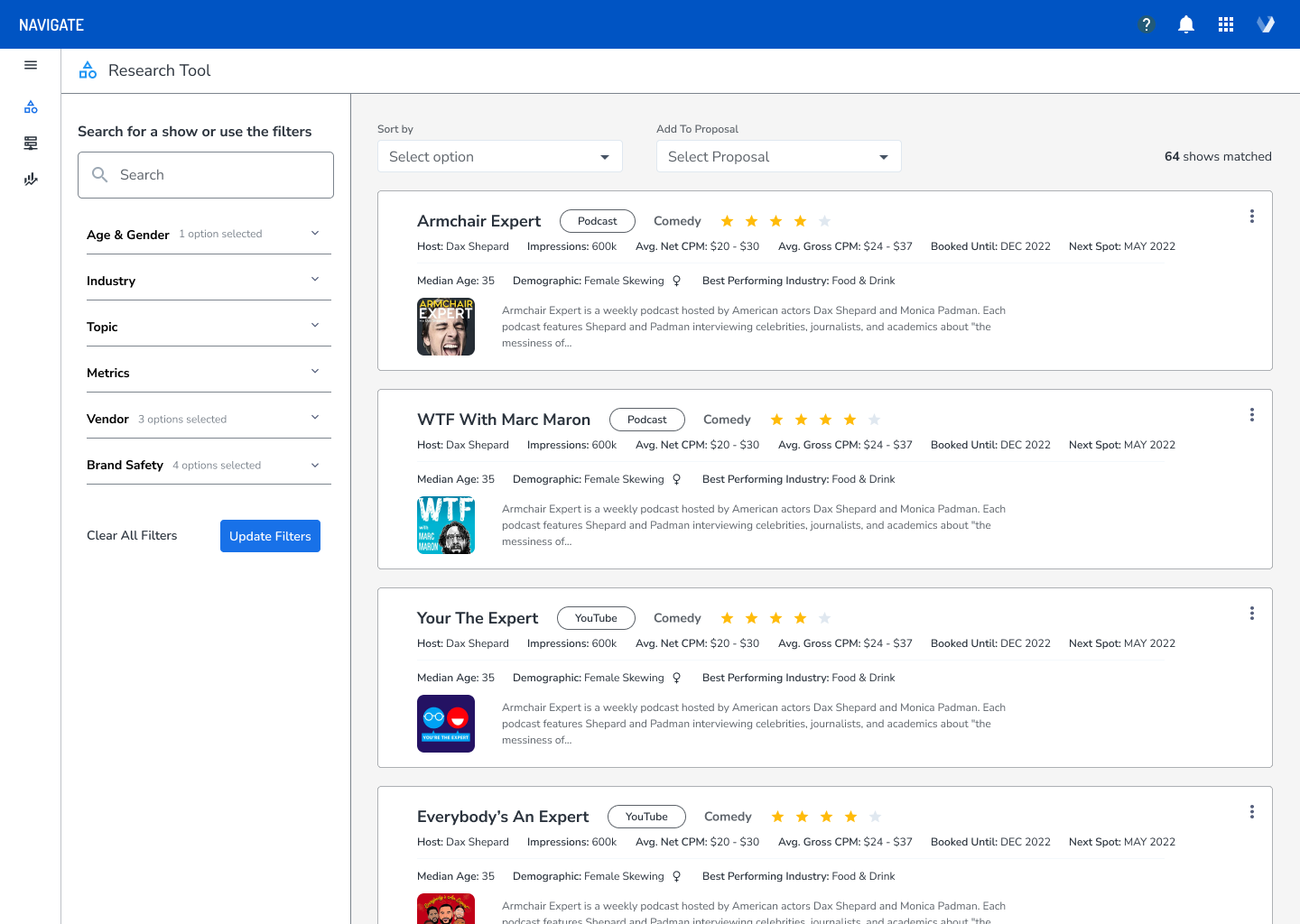
Understanding Existing Process & Mapping New Workflow
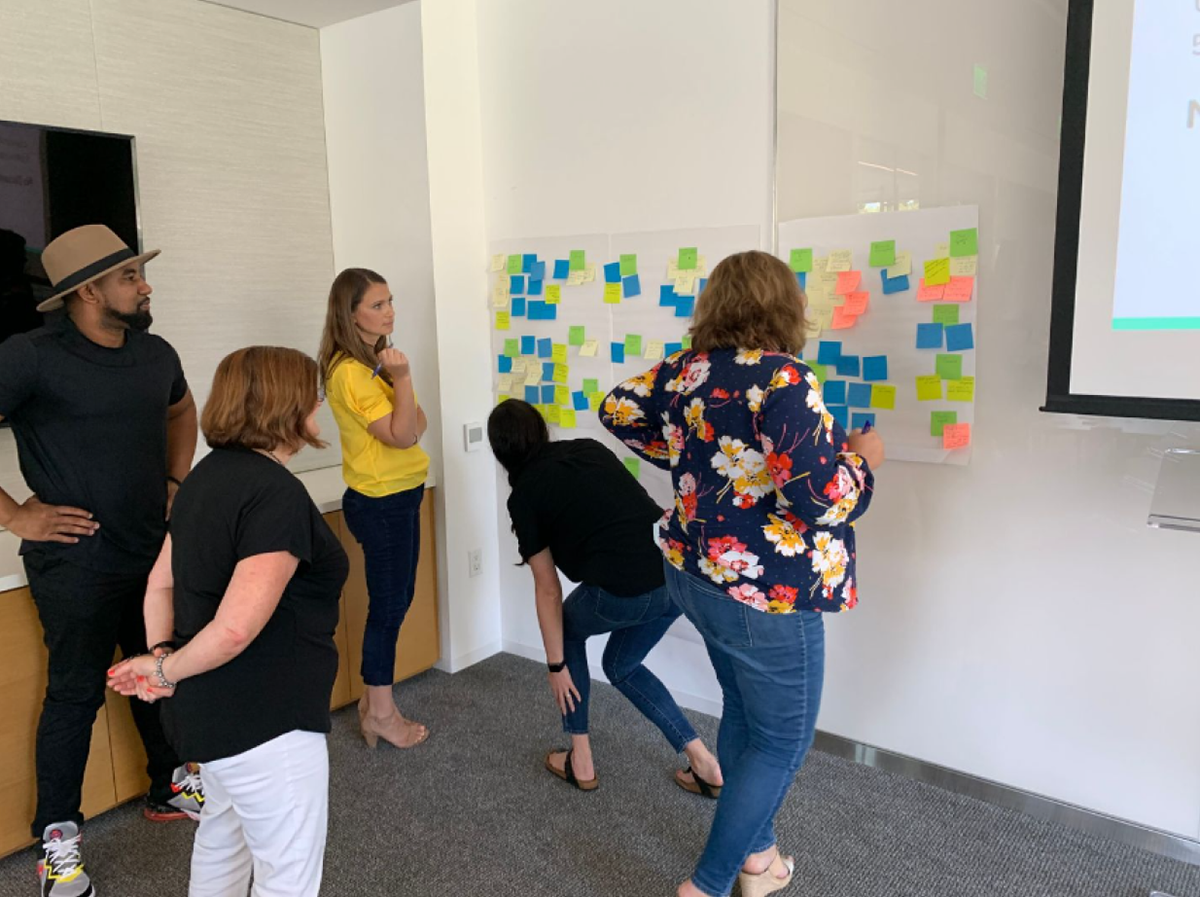
User Research
One of the challenges my designer faced was ambiguity. With many in the agency interested in the solution, design was provided an overabundance in suggestions on what this app might be and do. It took consistent partnership with the product managers to set expectations. Veritone One's media planning team had existing manual processes using Excel and templated proposals. This process was inefficient and time-consuming, leading to delays.
To create an efficient media planner tool, my team first identified some key requirements based on the research findings. Firstly, the media planner tool would need to provide advanced filtering and search capabilities to enable media planners to find the best shows to add to the media plan.
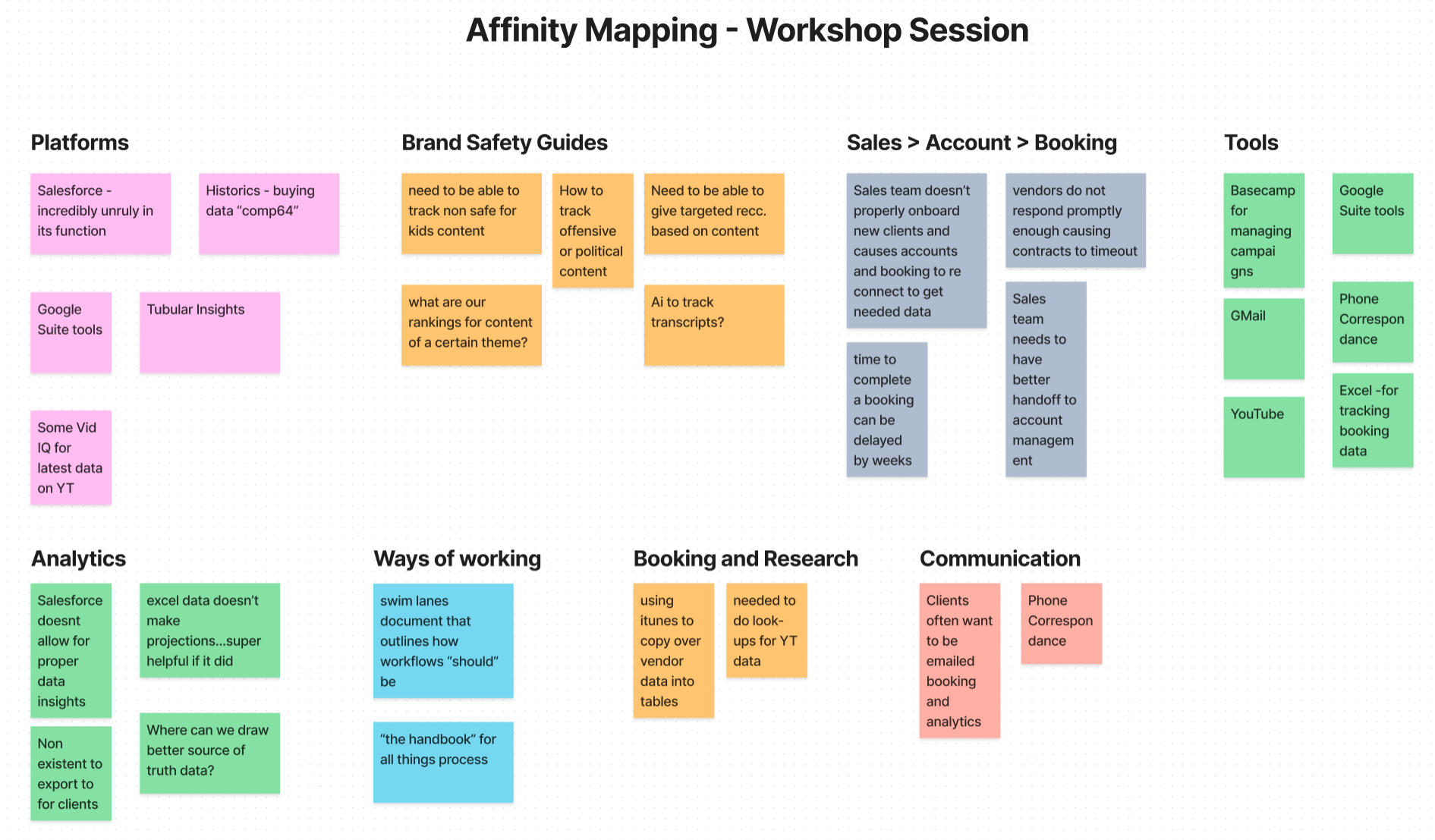
Media Planning Affinity Map - Kaleb Stegall
Veritone One Agency Workflow
Post workshop, I reviewed with PMs and UX designer the user journey and task analysis of the people involved in this process. Two problem statements formed, one for the Media Planner and two for the Account Manager.
Usability Testing and Design Iteration
At first, the design centered around search. After user feedback however the team discovered users lacked a search frameset. As designers, we needed to refine and elevate tactical information for the user. I coached the UX designer on how to adjust the search tool and how to feature pre-existing data making the most important information visible.
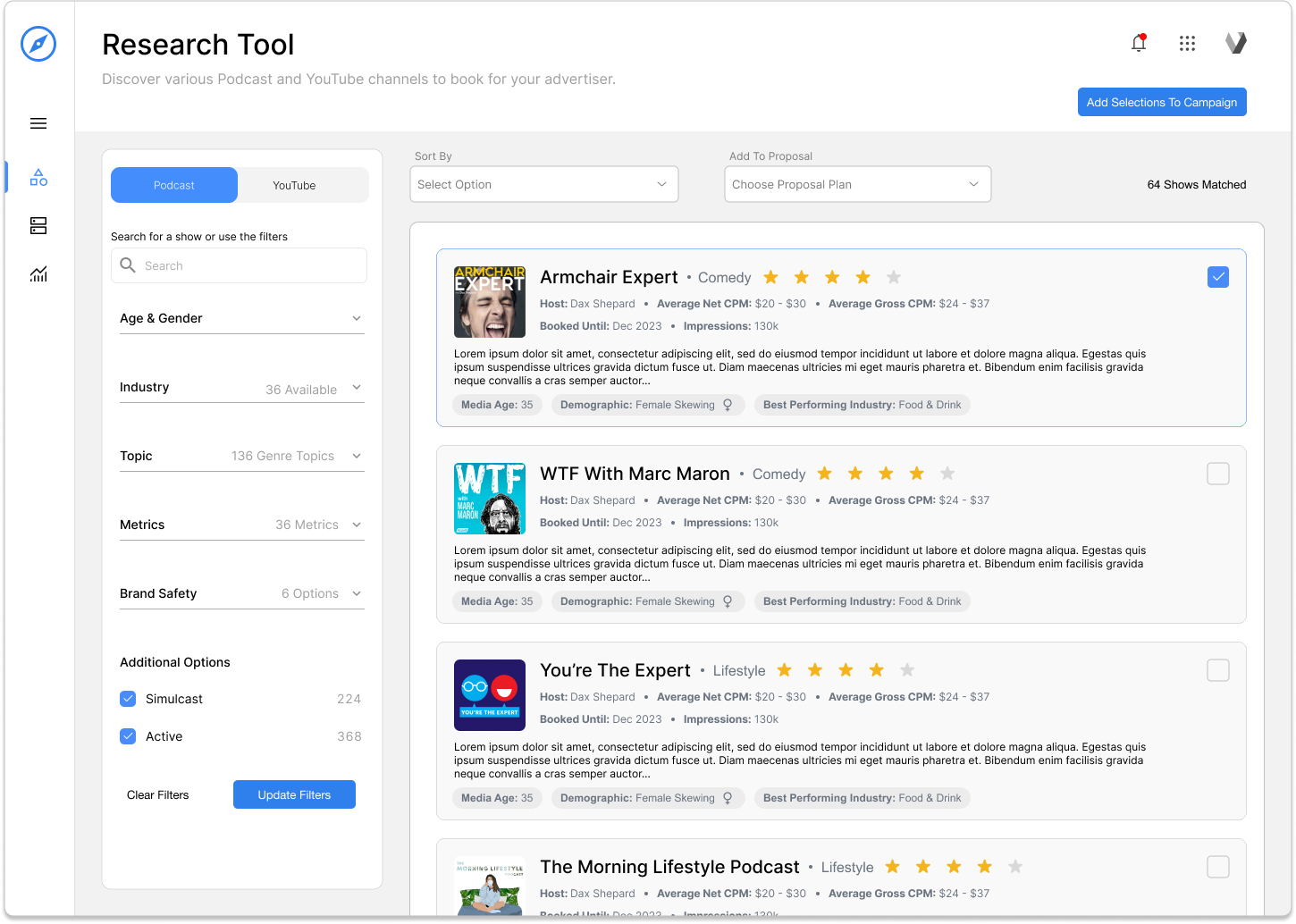
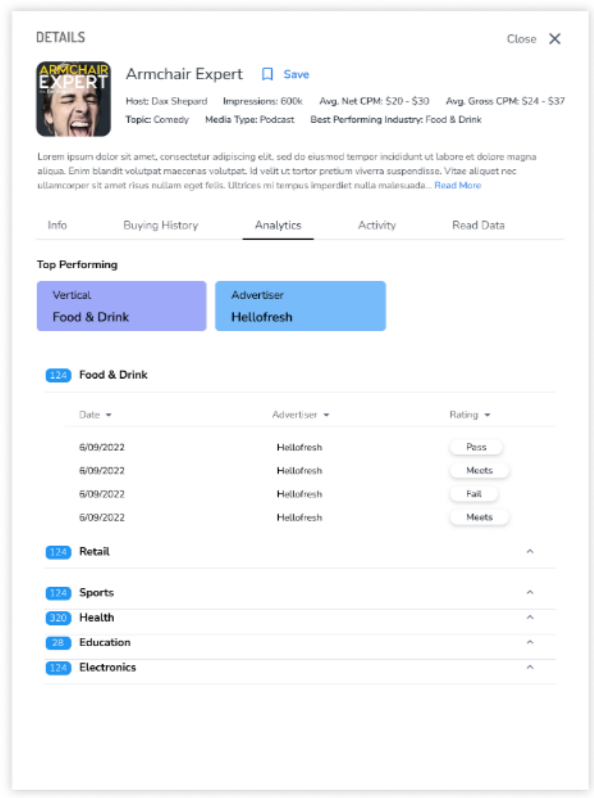
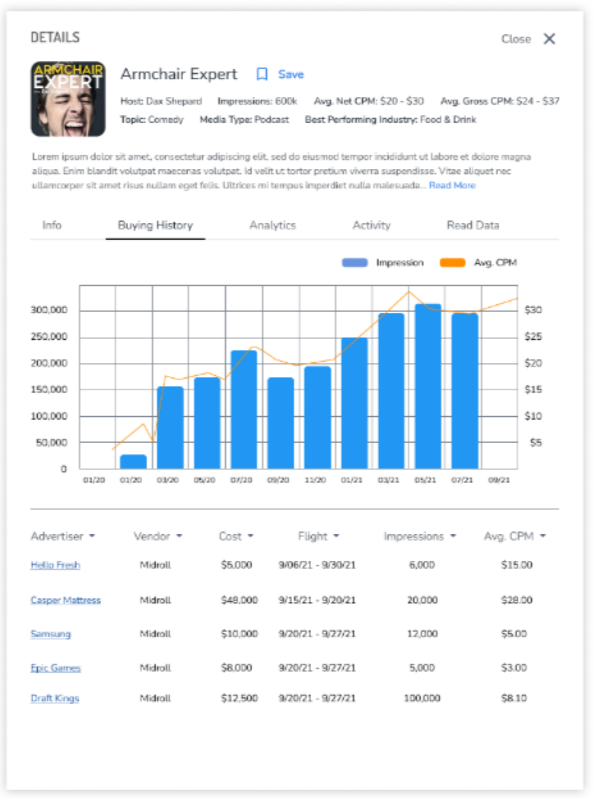
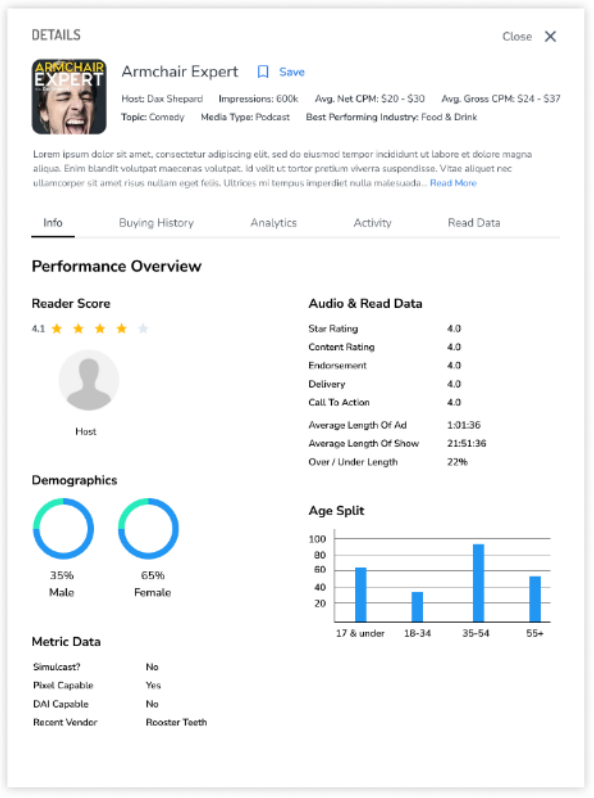
Leadership, Challenges, & Lessons Learned
One of the challenges encountered by my design team during this project was the persistent cycle of revisions brought about by the multitude of stakeholders involved. Attempting to address all of their ideas resulted in delays in finalizing the designs. Drawing on my extensive experience as a design leader, I identified the problem and assisted the UX designer in resetting expectations with both the project manager and stakeholders. Through streamlining certain pages, we enabled the engineering team to make timely deliveries. This allowed us to successfully deliver a tool that met the urgent requirements and regained the crucial support necessary to proceed to the next phase.